Ever wondered about the best foods to include in your diet that can help prevent cancer? Well, this article, Cancer Fighting Food 101, will show you how. Imagine having the power to have an enormous impact on your risk of developing cancer in your future. In fact, you absolutely have this power, and this article will show you how to use it. Plus, learn what colon healthy foods to start adding into your meals.
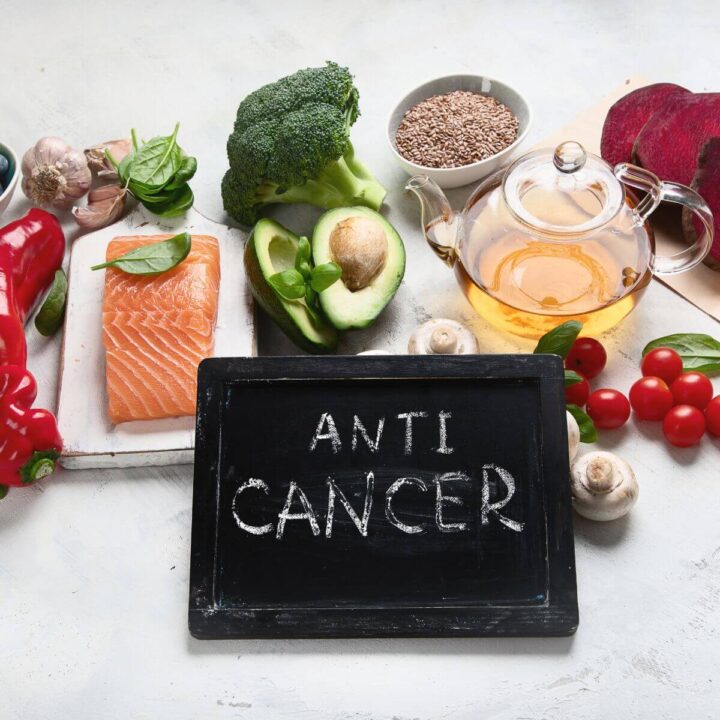
Table of Contents
While there is no single food or habit that will surely cause cancer, there is also no single food or habit that will surely prevent it. To reduce your risk of cancer, you can influence many of your daily lifestyle practices, including nutrition. There are several choices to make to exert a big difference to your cancer risk.
⁉️ How to Prevent Cancer Naturally
According to the World Cancer Research Fund International, these are the top cancer prevention recommendations related to diet, nutrition, and physical activity. In addition to foods that prevent cancer, learn simple lifestyle changes to improve your health.
- Be a healthy weight.
- Enjoy a better diet.
- Be physically active.
- Limit "fast foods".
- Cut down on sugary drinks.
- Limit red and processed meat.
- Limit alcohol consumption.
- Do not use supplements for cancer prevention.
- Breastfeed your baby if you can.
- Avoid smoking and other exposure to tobacco.
- Don't get excess sun exposure.
In this article, you're going to learn more about some of these diet and nutrition-related recommendations so that you can wield your power to reduce your risk of getting cancer. You'll also get some goals, tips, and strategies to make them work for you.
Health Fact:
The healthy nutrition strategies in this article will not only reduce your risk of cancer, but they can also reduce your risk for developing heart disease, high blood pressure, diabetes, and excess weight gain.
Take Note
Note that when you hear phrases like "limit" and "cut down", they don't necessarily suggest you completely remove all traces of these foods from your diet. It simply prompts you to consider enjoying them less often and in smaller portions as part of an overall nutritious and well-balanced diet.
🩺 What is Cancer? How Can Nutrition Reduce Your Risk With The Cancer Prevention Diet?
Behind heart disease (which is number one), cancer is the second-leading cause of death in the United States. Cancer occurs when cells-from anywhere in the body-become abnormal and multiply uncontrollably. These cancer cells can cause damage by eventually growing into lumps or otherwise spreading throughout the body.
There are many different types of cancer and many different things can increase and decrease your risk of cancer. Cancer starts when there is an interaction between cells, the genetics inherited from parents, exposures to different compounds and viruses, and any number of other factors.
The good news is that many cancers are highly preventable with a healthy lifestyle that includes an abundance of nutritious foods. In fact, according to Harvard Health, a healthy dietary pattern can reduce your cancer risk by 10-20 percent.
Excess Weight and Cancer Risk
One of the main nutrition-related factors that can increase the risk of cancer is excess weight. Studies show that excess weight can increase risks for cancers of the mouth, throat (pharynx, larynx, esophagus), stomach, pancreas, gall bladder, liver, colorectum, breast (post-menopausal), ovary, endometrium, prostate, and kidney.
🥗 How to Add In Cancer Fighting Food & Enjoy a Better Diet To Prevent Your Cancer Risk?
What exactly is a "better," cancer-risk-reducing diet? It's choosing more fruits and vegetables, whole grains, and legumes like beans and lentils. These foods help reduce cancer risk in many ways. For example, they are full of essential nutrients like vitamins, minerals, and fiber. Many fruits, vegetables, whole grains, and legumes also contain other health-promoting compounds like antioxidants. Plus, these foods can help protect against excess weight, because they can help you feel fuller longer due to their fiber and water content.
Health Fact
Fiber is a health-promoting carbohydrate found in plant foods. It's a unique type of carbohydrate, because it's one that our gut can't break down to digest. This has many health benefits for your digestive system. For one thing, fiber can help you feel fuller, and help your digestive system keep things moving and promote regularity. Fiber also supports a healthy gut microbiome by feeding your friendly gut bacteria. Getting your fiber from foods is recommended over fiber supplements whenever possible.
🥬 Fiber-Rich Foods & Prevent Cancer
Fiber-rich foods like fruits and vegetables, whole grains, and legumes also contain antioxidants and protein. These foods are known to help protect against many cancers, including colorectal cancer. Non-starchy fruits and vegetables also protect against several cancers, including cancers located in the mouth and throat.
A recommended goal is to eat at least five servings of non-starchy fruits and vegetables, and at least 30 grams of fiber each day. You can do this by including non-starchy fruits and vegetables, whole grains, and legumes in every meal, and enjoying them as snacks.
Examples of these foods are:
- Variety of colors of fruits and vegetables, like tomatoes, carrots, pineapple, broccoli, bell peppers, leafy greens, and blueberries. These cancer fighting foods are quite easy to add to your meals.
- Whole grains like brown rice, whole wheat, and oats.
- Cancer fighting foods like legumes include black beans, chickpeas (garbanzo beans), and lentils.
⁉️ How To Limit "Fast Foods" To Reduce Your Cancer Risk Naturally Through Healthy Diet
"Fast foods" are convenient foods, often very processed. "Processed" means they're heavily manufactured and don't resemble their natural state. (Think of an apple picked from a tree and how much it goes through to become part of an apple pie). Examples of fast foods include burgers, fried chicken, potato chips, fries, cakes, pastries, candies, and candy bars.
Many fast foods are engineered to be very tasty ("highly palatable") and are prone to be enjoyed often and in large quantities. Fast foods are almost always high in fat, salt, and starches or sugars. They also usually have a long shelf-life so they can be stored for a long time (e.g., they're not "fresh" foods that can wilt or go bad quickly). Eating too many fast and highly processed foods is linked to increased weight, insulin, blood sugar, and blood pressure.
The goal to reduce your cancer risk-and improve your overall health-is to limit how often and how much fast food is eaten. In addition, it is important to try to reduce inflammation in the body.
How many times have you reached for that Chinese take out menu because you are exhausted and want a delicious meal fast? Well, here's a quick recipe for my easy to make paleo Mandarin orange chicken. Rather than eat an unhealthy dinner, cook at home in only 15 minutes, and boom, you have a more nutritious version of your favorite orange chicken.
🥩 How to Limit Red and Processed Meat To Prevent Your Cancer Risk With Cancer Fighting Food
Meat can be a good source of protein, iron, zinc, and Vitamin B12. However, eating too much red and processed meat is linked to many cancers, with the strongest link being to colorectal cancer.
Red meat includes beef, pork, veal, lamb, and goat. Processed meat is meat that has been salted, smoked, cured, or fermented. These processes are done to enhance the flavor of the meat and also to preserve it and increase its shelf life. Examples of processed meats are hot dogs, bacon, salami, sausages, and deli meats like ham.
Red and processed meats can contribute to cancer risk, because they may contain or create cancer-causing substances when they're processed and cooked (charred). They can also contribute to excess weight, which is a risk factor for many cancers.
The goal is to enjoy red meat up to three portions per week, and even less processed meat. When you do eat red meat, you can choose leaner cuts of it, or even substitute it with other cancer fighting foods that are higher-protein foods, like poultry, fish, legumes, eggs, nuts, or dairy.

5 Colon Healthy Foods
Maintaining a healthy colon is essential for the proper functioning of our digestive system. Fortunately, there are many foods you can incorporate into your daily diet to promote good intestinal health. Here are a few foods for a healthy colon.
Fiber
Foods rich in fiber are excellent for maintaining a healthy colon. Fresh fruits and vegetables, whole grains, and legumes are natural sources of fiber that help improve intestinal transit and prevent constipation. Try these colon healthy foods.
📥 GET THIS RECIPE IN YOUR INBOX 📥
Probiotics
Probiotics are beneficial bacteria that promote intestinal health. Natural yogurt, kefir, and other fermented foods are excellent sources of probiotics that help maintain a healthy balance of bacteria in the colon.
Water
Not only are foods that prevent cancer, but also hydration. Staying hydrated is essential for good intestinal health. Drinking enough water helps keep the stool soft and facilitates its passage through the colon.
Omega-3
Omega-3 fatty acids have anti-inflammatory properties and may help reduce irritation in the colon. Fatty fish such as salmon, sardines, and anchovies are good sources of omega-3.
Cruciferous Vegetables
Cruciferous vegetables like broccoli, cauliflower, and Brussels sprouts are rich in antioxidants and contain compounds that promote good intestinal health. These foods that prevent cancer are delicious too.
Always remember to consult with a doctor before making significant changes to your diet. Adopting a balanced and varied diet, along with a healthy lifestyle, can help you maintain a healthy colon and promote good health.
Try my recipe for my gut-friendly Ginger Garlic Cabbage Saute. Loaded with healthy hormone balancing purple cabbage, carrots, and sesame, this makes for a terrific side, along with an omega-3 rich salmon recipe.
🥤 How to Cut Down on Sugary Drinks To Prevent Your Cancer Risk
Sugar-sweetened drinks include sodas and energy drinks, as well as sugar added to other beverages like tea and coffee. There is strong evidence that high intakes of sugary drinks contribute to excess weight and increase the risk of cancer. So, don't just think of cancer fighting foods, try to also cut down on sugary sodas.
Health Fact
Drinking coffee may protect against liver, endometrial, mouth, and throat cancers. Drinking tea (but not maté tea) is linked to a reduced risk of bladder cancer. Consider enjoying them with a bit less sugar.
Pro Nutrition Tip
Did you know most coffee shops will happily make their signature drinks with half of the sugar/syrup? Simply ask for your drink to be "half sweet" and see if they can accommodate your journey toward better health.
Try to reduce your intake of sugary drinks by having them less often and in smaller amounts. When it comes to benefits of substituting sugar-sweetened drinks with low-calorie artificially-sweetened drinks, the science is not clear. That's why the recommendation is to enjoy water and unsweetened drinks.
So, what can you do right now if you are looking for a replacement to sugary sodas? Read my Easy, Perfect Low Sugar Drink Ideas, like my mango infused water recipe.

FAQ - Common Questions
What Foods Should You Eat If You Have Cancer?
When it comes to managing your diet while living with cancer, it is important to focus on nutrient-rich foods that can support your overall health and well-being. While every individual's dietary needs might vary, here are some general guidelines on what foods you can include in your diet. You may need to focus on extra protein and calories.
Fruits and Vegetables
Aim to incorporate various colorful fruits and vegetables into your meals. These are packed with antioxidants, vitamins, and minerals that can help strengthen your immune system. Opt for leafy greens, berries, citrus fruits, cruciferous vegetables, and colorful bell peppers.
Whole Grains
Choose whole grain products, such as whole wheat bread, brown rice, quinoa, and oats. These provide fiber, vitamins, and minerals, and can help maintain energy levels throughout the day.
Lean Protein
Include lean protein sources such as skinless poultry, fish, eggs, legumes, and tofu. Protein is essential for tissue repair and supports the immune system.
Healthy Fats
Incorporate sources of healthy fats into your diet, such as colon healthy foods like avocados, nuts, seeds, and olive oil. These fats provide essential fatty acids and can help reduce inflammation.
Hydration
Stay hydrated by drinking plenty of water throughout the day. Proper hydration is important for overall health and can help manage side effects of cancer treatments.
Limit Processed Foods
Minimize the intake of processed and packaged foods high in added sugars, sodium, and unhealthy fats. These can negatively impact your health and well-being.
Sauces and Gravies
Individuals with cancer may have trouble chewing and swallowing, so adding healthier sauces and gravies ensures you meet your caloric and nutritional needs. Try to focus on higher protein enriched sauces and gravies.
Please note that it is always recommended to consult with a healthcare professional who specializes in oncology nutrition. They can provide personalized guidance based on your specific needs and medical condition.
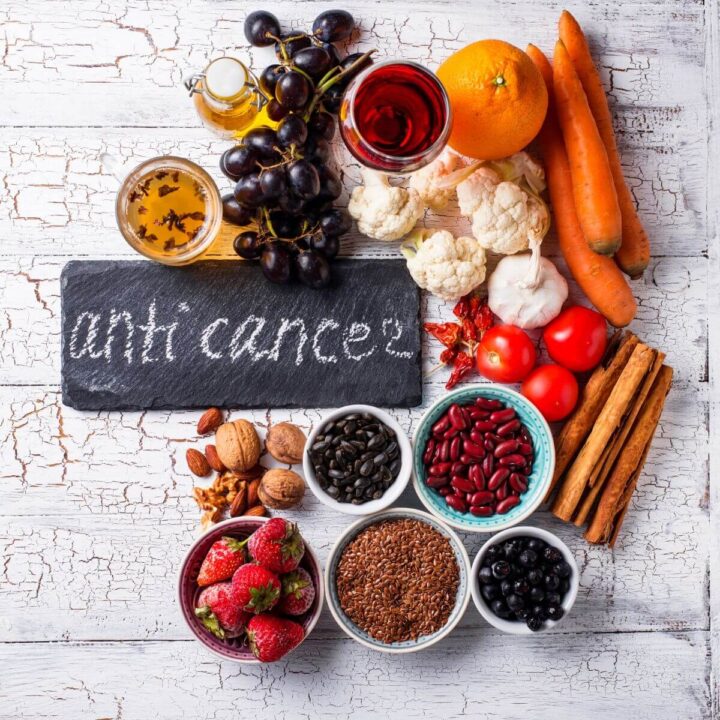
👉 Final Thoughts on Cancer Fighting Foods Through a Natural Diet
Cancer is no small health risk, and the empowering truth is that you can influence your health and future with nutrition. The foods, diet, (and drinks) you consume contribute to your healthy lifestyle to reduce your risk of cancer. And the great news is that these strategies can also reduce your risk of other chronic diseases simultaneously.
By choosing more fruits, vegetables, whole grains, and legumes, and choosing fewer fast foods, red and processed meats, and sugary drinks, you can exert a big impact on your health. This is one of the ways to prevent cancer naturally. and how to eat healthier. You don't need to overhaul everything right away, because small, sustainable changes to your daily life can lead to improved wellness. You can start by trying one of the recipes or featured nutrition challenges that I've linked to in this article.
Need help choosing or implementing more fruits, vegetables, whole grains, and legumes into your diet? I'm here for you. Want some additional help adding in more colon healthy foods?As a certified holistic nutritionist, I'd love to help.
Wondering how to make that broccoli taste great, or how to substitute legumes for ground meat? Want more tips and strategies to start kicking those sugary drinks to the curb? Need support to plan, shop, and prepare more nutritious and healthy meals for yourself or your family? Check out how my programs and services can help you.
You can also connect with me @EatYourNutrition on Instagram. I love seeing your photos. #EatYourNutrition #LauraVillanueva


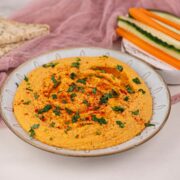



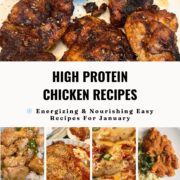
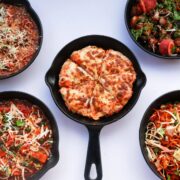

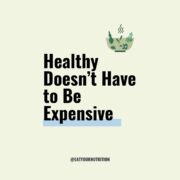



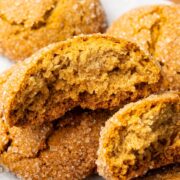
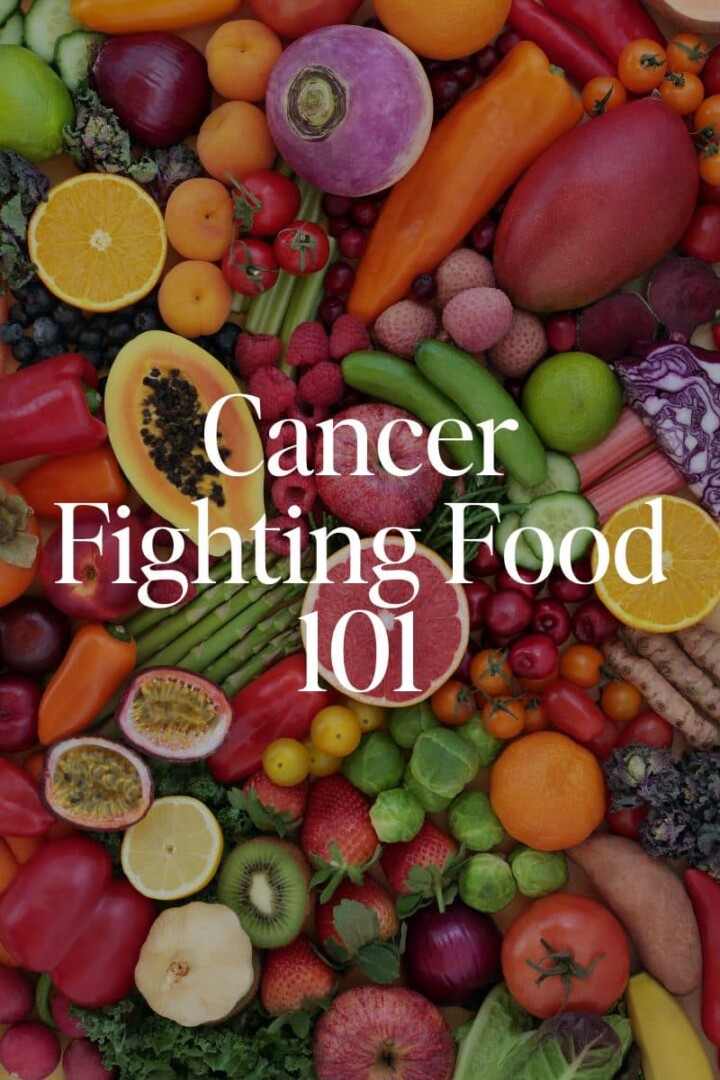
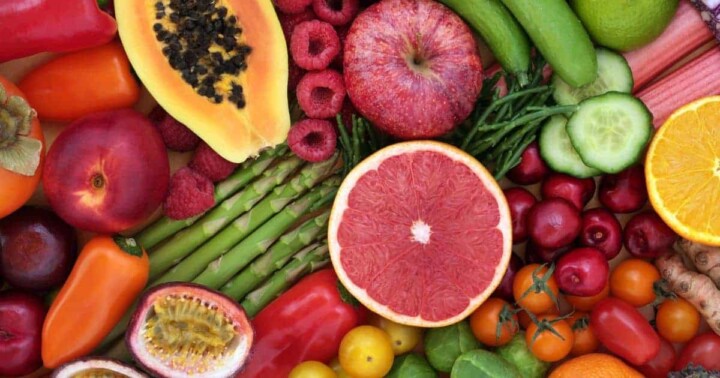
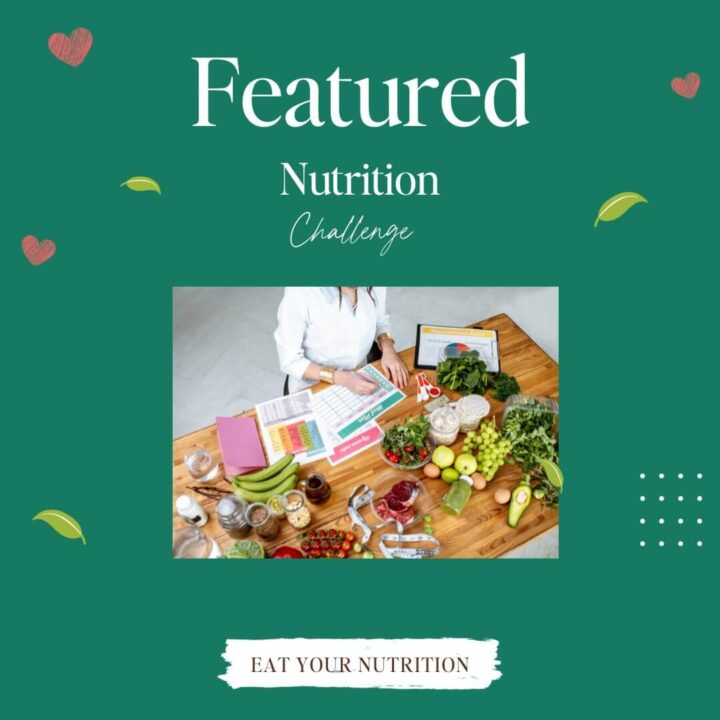
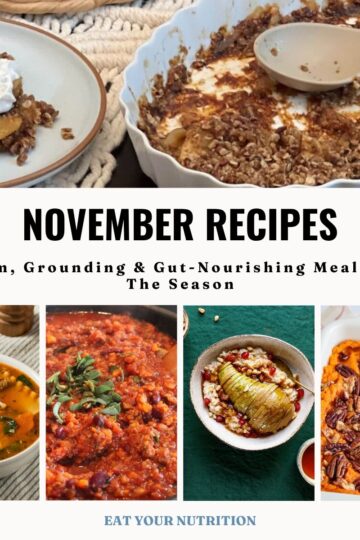

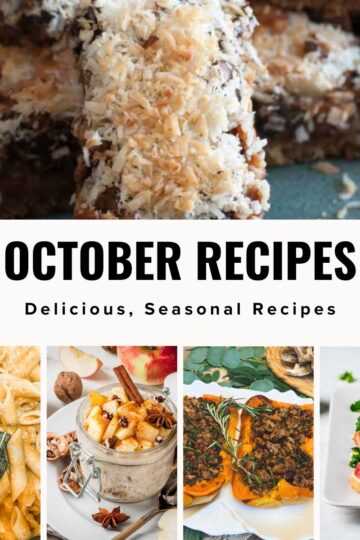
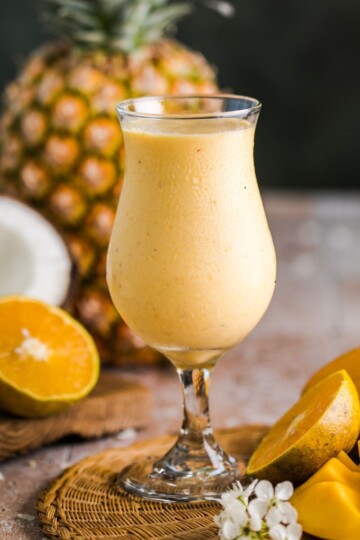
Comments
No Comments